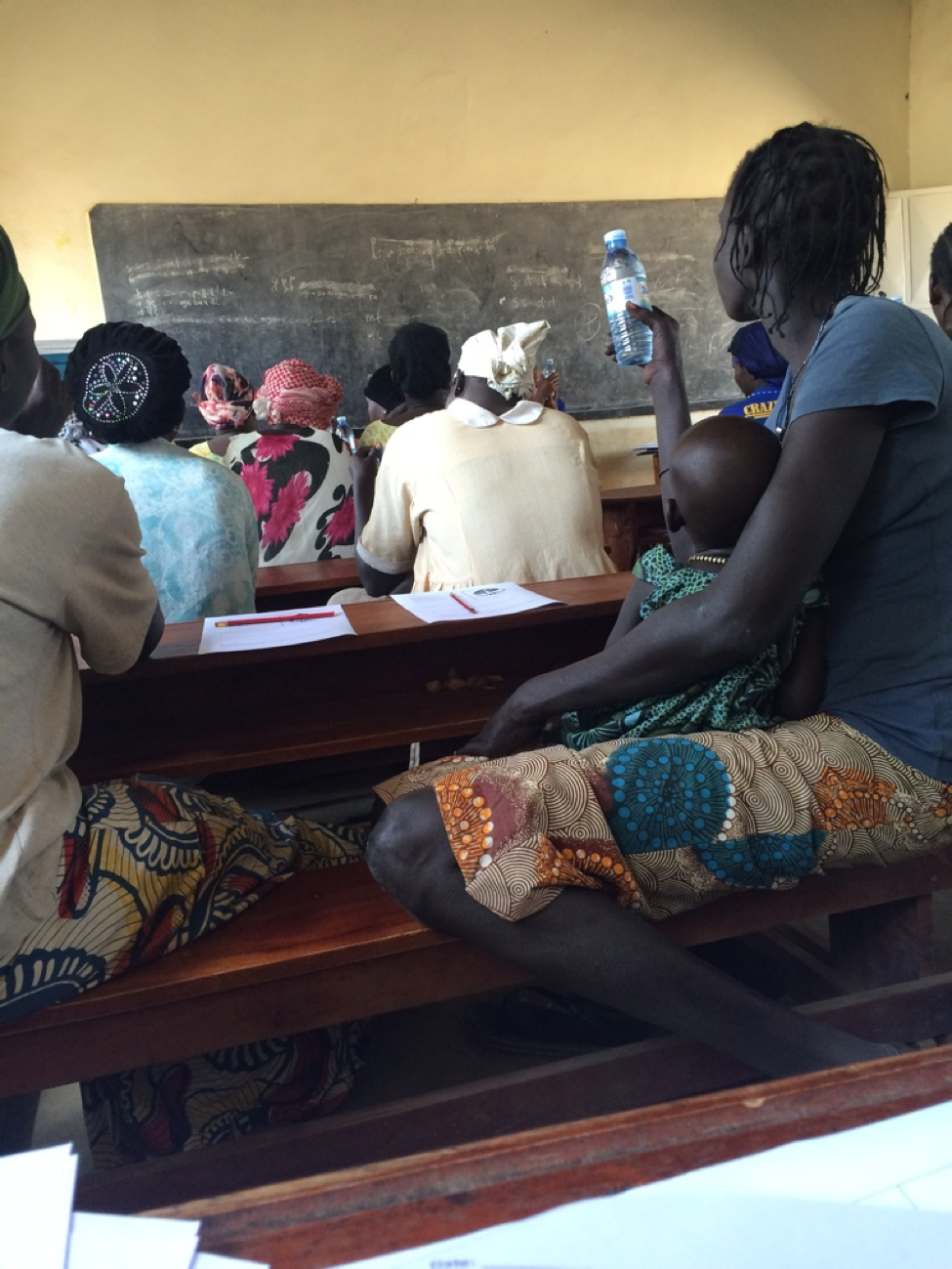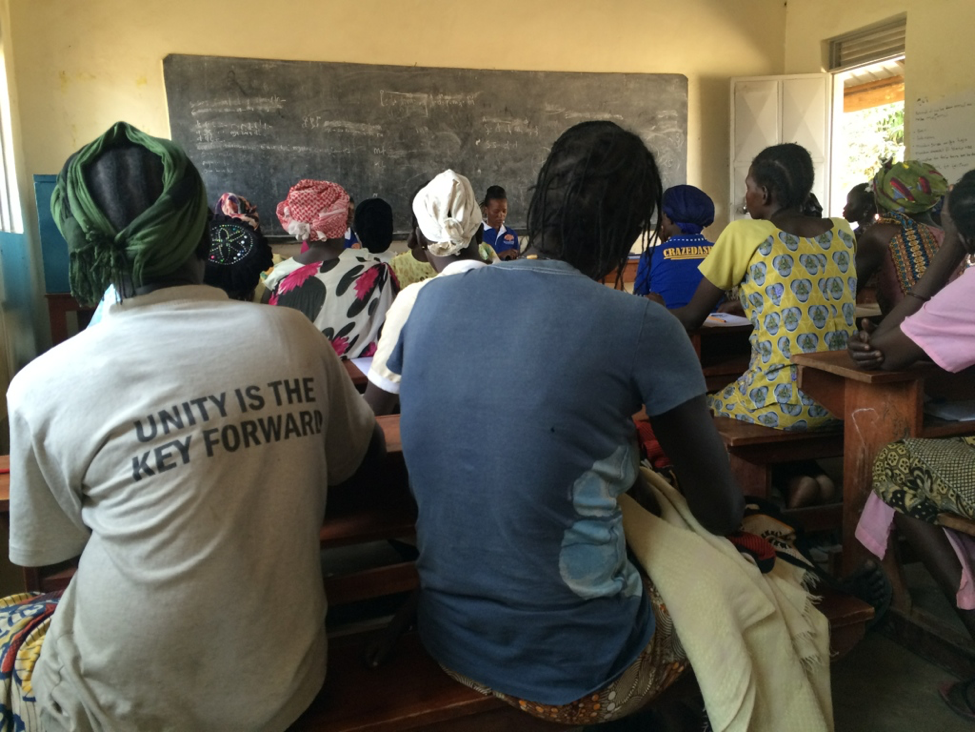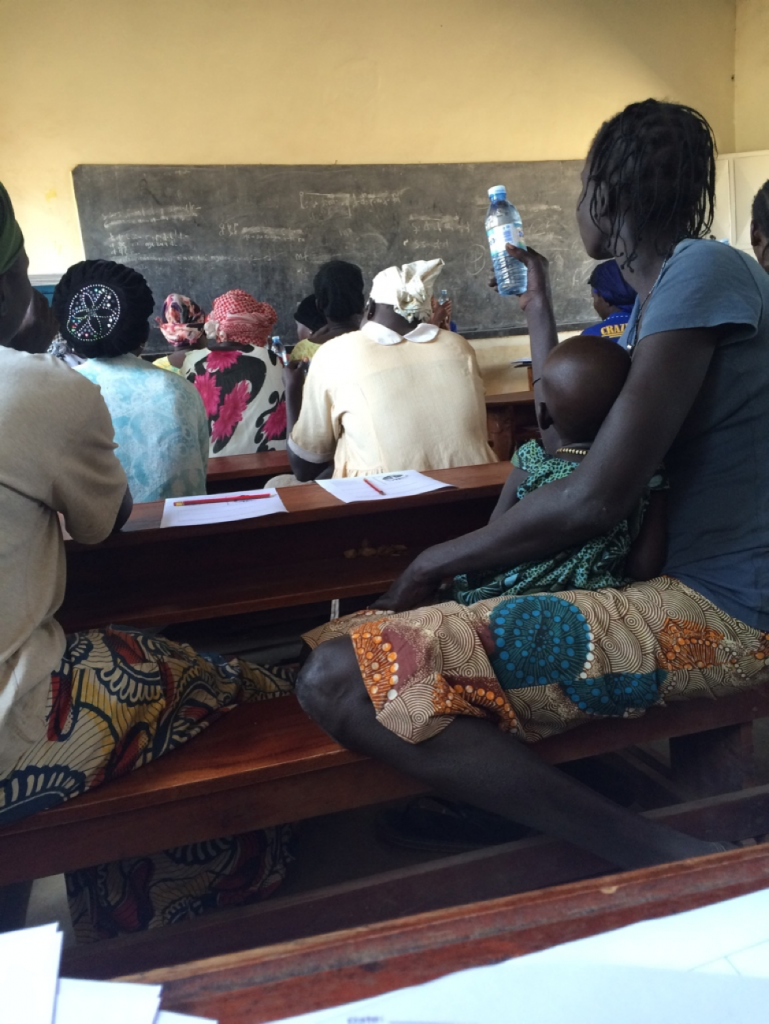Shaping the future: Our strategy for research and innovation in humanitarian response.

Shaping the future: Our strategy for research and innovation in humanitarian response.


Filling a research gap in humanitarian settings: A scalable psychosocial support programme to meet the needs of South Sudanese refugees in Uganda
After decades of conflict, hostilities re-commenced in South Sudan shortly after the country gained its independence over five years ago. This protracted conflict has resulted in the deaths and displacement of millions of South Sudanese, many of whom have fled to Uganda in search of safety and stability. Once a rhinoceros sanctuary situated in northwestern Uganda not far from the borders of the Democratic Republic of Congo and South Sudan, Rhino Camp Refugee Settlement is now home to over 22 000 South Sudanese refugees.
South Sudanese refugees living in Rhino Camp face a myriad of problems that make day-to-day life a struggle. Tensions continue to run high between ethnic groups and histories of interpersonal and sexual violence are common experiences for women living in the camp, who largely outnumber men and who are often the sole providers for children and the elderly. While the exact mental health status of the South Sudanese population in Rhino Camp is not known, the burden of mental health problems is estimated to be high. Despite the clear need for services, there are only a handful of agencies providing direct mental health and psychosocial support to those in need. The Peter C Alderman Foundation (PCAF) is the most active among them, with monthly outreach services to each of the four primary health centers in the camp. Despite these efforts, a large number of refugees remain without needed care.

We brought Self-Help Plus (SH+), a highly innovative programme developed by the World Health Organization (WHO), to Rhino Camp due to the programme’s potential for widespread access and scale-up in humanitarian settings where the prevalence of psychological distress is high and access to mental health and psychosocial services is limited. Informed by the literature on guided self-help and bibliotherapy, SH+ combines a pre-recorded audio course and illustrated book designed for low-literacy populations to create a low-intensity psychosocial intervention.
While the SH+ project is being implemented by PCAF, its evaluation involves a joint effort between a range of institutions including PCAF, the World Health Organization (WHO), and Johns Hopkins University. The evaluation is a 3-year effort. The first year, funded by UN Action, tested the feasibility and acceptability of the intervention and has just been completed. The second and third years, funded by ELHRA’s R2HC, have just started.
In its first year the project focused on assessing the acceptability and feasibility of SH+ for South Sudanese refugees in Rhino Camp. After putting together strong intervention and research teams based out of the Arua Regional Hospital, we began preparations to assess the community’s response to the intervention and the success of small-scale implementation of SH+. A number of stakeholder meetings were held, bringing together humanitarian agencies, regional level decision makers, and community leaders. We set up a community advisory board within Rhino camp which proved instrumental throughout this early stage of the project and the evolution of the programme benefited from their critical questions, helpful suggestions, and assistance with translation into Juba Arabic. We interviewed village leaders, teachers, elders, traditional and religious leaders to better understand the needs of the refugees, and later on, we interviewed community members to gain insight into the comprehensibility, acceptability, and relevance of SH+. In addition, we held workshops to critically consider how best to adapt the programme before implementation. The resulting changes included the re-drawing of pictures for the illustrated book and re-scripting of segments of the audio-course. At the same time, we continued to grapple with the ongoing challenge of translating our materials from English to Juba Arabic, a marketplace language on the use of which even our local intervention and research teams struggled to agree.

We chose to first pilot the programme (without a comparison group) in a small village called Siripi on the outskirts of Rhino Camp. Approximately 30 men and 30 women participated in the SH+ programme, attending one two-hour session each week for five weeks. At the end of the programme, we interviewed participants and SH+ staff that had helped implement the programme to determine how it could be improved for the next stage of the project. We were particularly interested in hearing from men who had attended one session but who had not returned for the remaining sessions, since we had lost approximately 50% of the male group after one or two sessions. We learned that many men, particularly younger men, had not returned because, they said, no material goods had been provided by the programme, which is a common complaint when mental health or psychosocial programs are first implemented in humanitarian settings. A minority of men had attended the first session after consuming alcohol and this had put off others from attending later sessions.
Female participants and older men had excellent participation rates and reported that the programme had helped them stop “overthinking” their problems, such as family members lost during the conflict in South Sudan and the delay in food distribution and water shortage that had recently affected the village. Several participants described how SH+’s breathing exercises had helped them relax and had reduced their stress. Some participants who had previously struggled with alcohol use reported that they were no longer drinking. There were heartwarming stories of how the programme had helped improve relationships with neighbours and had reduced conflict in the community, since all community members participated in SH+ together regardless of tribal affiliation.
Quantitative measures of distress and functioning confirmed that people reported significant improvements over time. Given the low rates of literacy, particularly among women, many women reported not understanding the written materials. Nonetheless, women found creative ways to use the picture book by having their children read to them and by reviewing the pictures together in groups and relating them to the concepts covered during the sessions.
These findings were discussed in a planning meeting held this April, which was attended by the project management team, PCAF staff, and members of the community advisory board. This planning meeting, which functioned as the kick-off meeting for ELHRA’s R2HC project, led to the design of what the teams expect be a state-of-the-art research project involving a small (feasibility) and large (definitive) randomized controlled trial of SH+ among South Sudanese adult women in Rhino Camp.
Jura Augustinavicius, Research Associate, Peter C. Alderman Foundation
Leku Marx, Self Help+ Research Team Leader, Peter C. Alderman Foundation

 Please upgrade your browser
Please upgrade your browser
You are seeing this because you are using a browser that is not supported. The Elrha website is built using modern technology and standards. We recommend upgrading your browser with one of the following to properly view our website:
Windows MacPlease note that this is not an exhaustive list of browsers. We also do not intend to recommend a particular manufacturer's browser over another's; only to suggest upgrading to a browser version that is compliant with current standards to give you the best and most secure browsing experience.